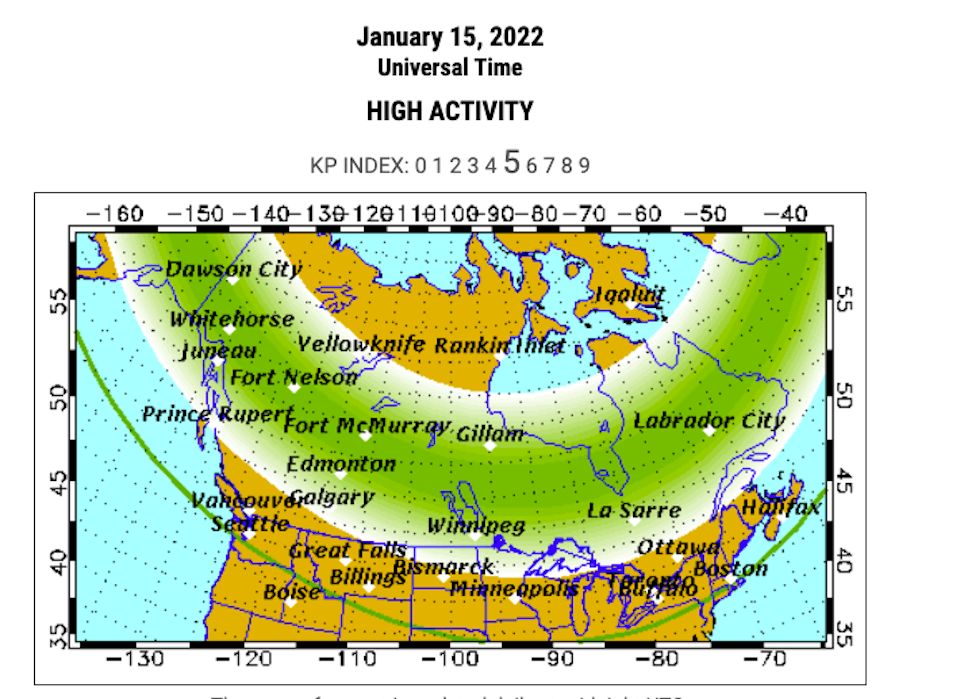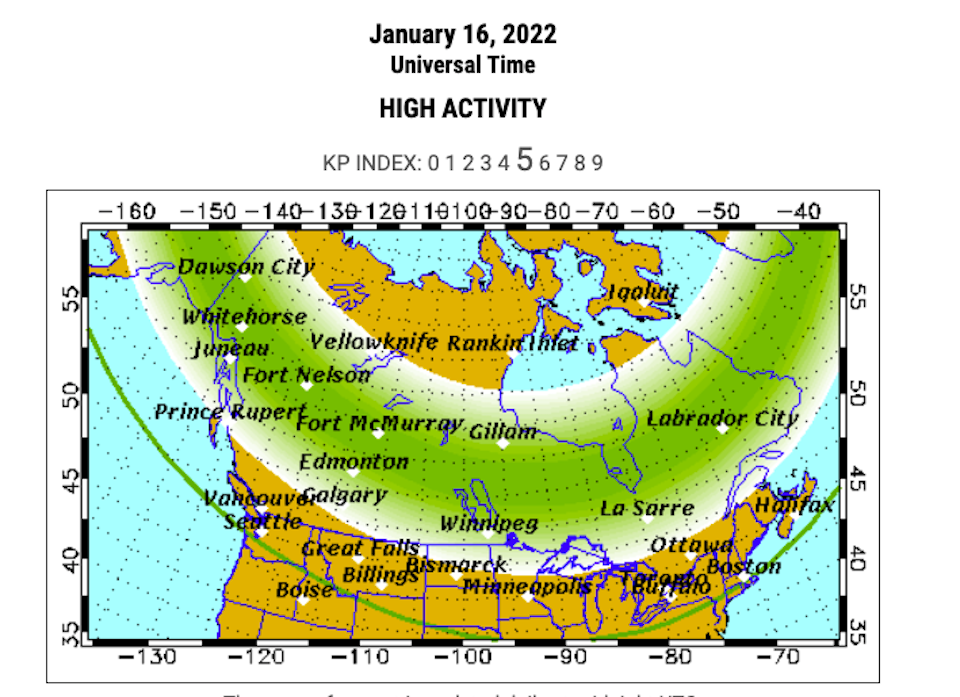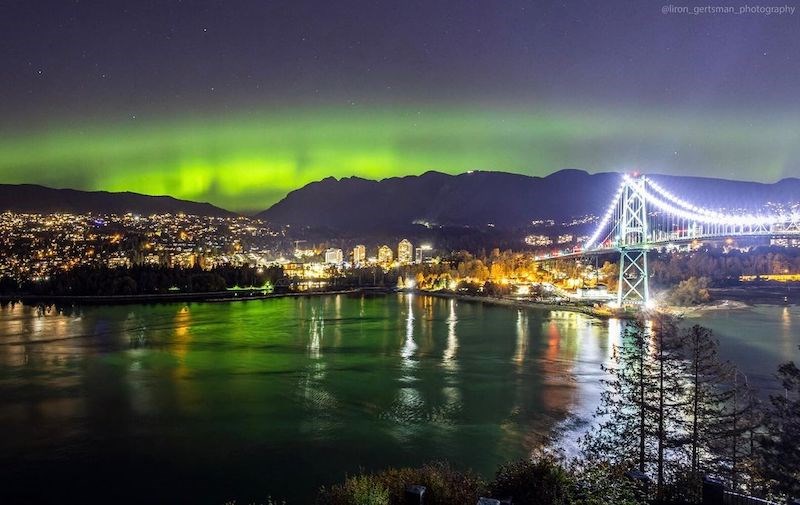Metro Vancouver sky-watchers, rejoice!
Locals have a couple of opportunities to view the aurora borealis in Metro Vancouver skies this weekend, weather permitting.
The National Oceanic and Atmospheric Administration (NOAA)'s Space Weather Prediction Center has issued a minor G1 geomagnetic storm watch (max Kp of 5) for Saturday (Jan. 15) evening and Sunday "due to the arrival of an anticipated coronal hole solar wind stream," according to Spaceweatherlive.
And according to the University of Fairbanks (UAF), the northern lights may be viewable in local skies this weekend on both of the aforementioned nights.
Auroral activity is expected to be high on Saturday and highly active auroral displays may be visible from "Inuvik, Yellowknife, Rankin and Iqaluit to Juneau, Edmonton, Winnipeg, Thunder Bay and Sept-Iles, and visible low on the horizon from Seattle, Des Moines, Chicago, Cleveland, Boston, and Halifax."
The university's online aurora monitor map shows what regions the aurora's green glow will likely reach, as well as another area where there is less of a possibility. Additionally, there is a brief description below the map of the aurora activity on that particular day. You can switch to other days to see the forecast, too.

The UAF is also calling for high auroral activity on Sunday, with "highly active auroral displays" visible overhead from Inuvik down to Seattle and extending across Canada, too.

What is the best time of night to see aurora?
UAF recommends that you plan to be out for three or four hours around midnight. That said, the dancing lights are active throughout the night. Since clear sky and darkness are both essential to see aurora, the best time is dictated by the weather and by the sunrise and sunset times. The moon is also very bright and can make it more difficult to view the aurora, so lunar cycles should be taken into account.
Find out more information about when to see the vibrant display with the UAF's aurora monitor map.



